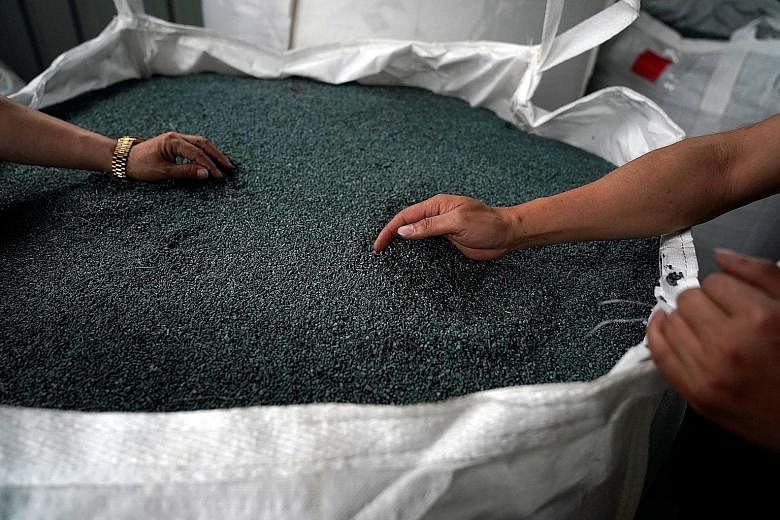TAICANG (China) • In a smoke-filled plant about 80km north-west of Shanghai, masked workers feed sacks of plastic scrap into shuddering old machines that transform them into pellets used to make a range of manufactured goods.
But while the factory, operated by Taicang Jinhui Recycling, remains a hive of activity, the company has been moving much of its capacity to Malaysia following Chinese restrictions on recycled plastic imports that came into effect this year.
The curbs on imported trash have deprived recyclers of about half of what they need to produce the plastic pellets they sell to manufacturers of products ranging from office furniture to sheaths for fibre-optic cables. And with domestic supply hard to come by, many have had little choice but to move abroad to stay alive.
Jinhui's chairman, Mr Thomas He, said: "Here, in our industrial park, we are the only company still producing - another 22 enterprises have stopped operations and just do warehousing or whatever, and all their staff have disappeared."
Jinhui has laid off 250 workers from its workforce of around 400 people since the restrictions came into force, though it has hired another 600 in Malaysia.
The firm is one of over 1,000 recycling enterprises - a third of China's total - to relocate its expertise, equipment and waste supply chains to South-east Asia, according to the China Scrap Plastic Association (CSPA), with total investment so far estimated at around 10 billion yuan (S$2.1 billion).
China decided last July to stop importing 24 kinds of foreign waste, including plastic, disrupting a global supply chain that saw more than seven million tonnes of scrap plastic, mainly from Europe and the United States, delivered into Chinese ports every year.
The Chinese ban was part of an effort to upgrade its economy and tackle the growing volumes of domestic trash clogging its rivers or sitting untreated in sprawling landfills that encircle major cities.
Now, some countries in South-east Asia, already struggling with their own domestic waste problems, will have to grapple with the same issues as trash imports increase.
CSPA said Thailand was tightening regulations and raising import taxes, with one China-invested importer already forced to close. Malaysia also temporarily suspended new import permit applications in mid-May.
REUTERS

